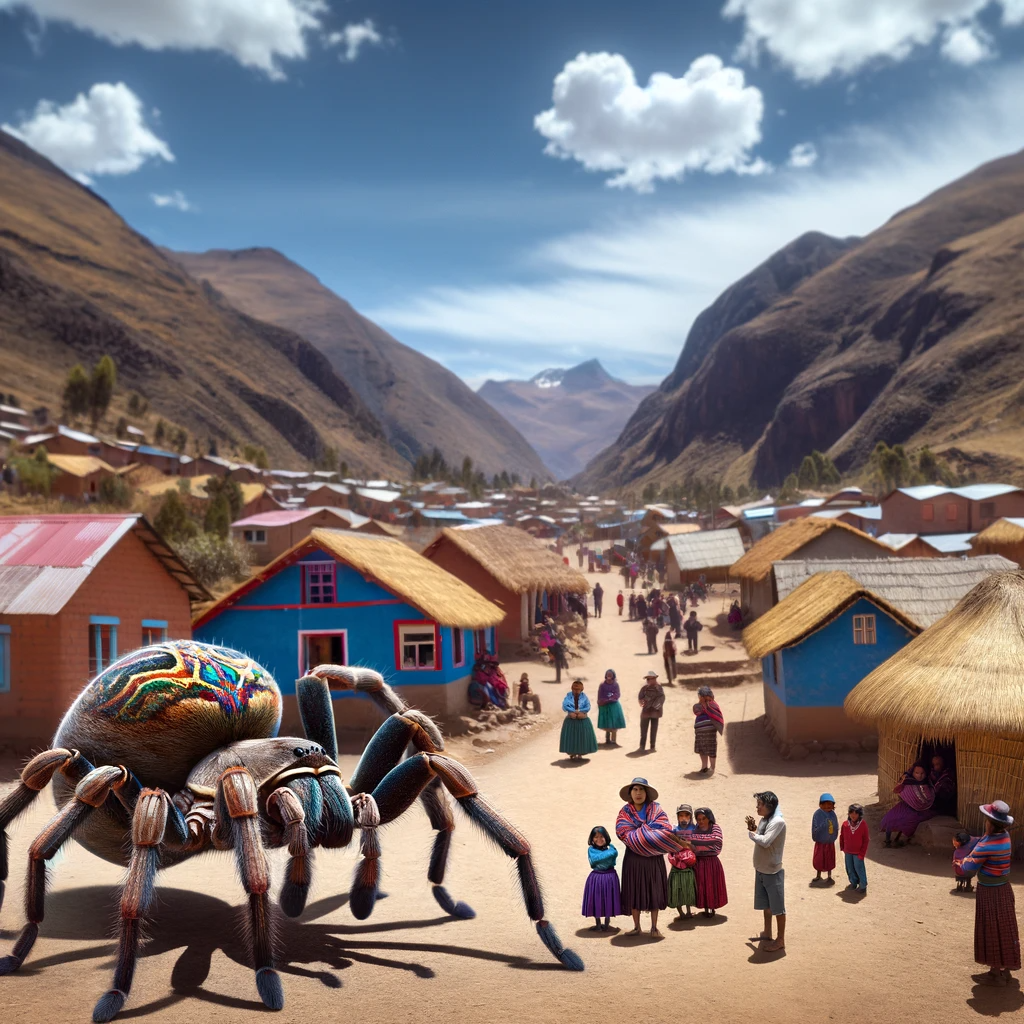
Mamani, a mysterious and enigmatic figure from Bolivian folklore, is a fascinating subject to explore. This article aims to delve into the legends and cultural significance of Mamani, offering insights into the rich tapestry of Bolivian myth and tradition.
Origins and Mythology
Mamani is a character rooted in the ancient folklore of Bolivia, particularly within the Aymara and Quechua communities. The name “Mamani” itself is common in the Aymara and Quechua cultures, often used as a surname. However, in folklore, it transforms into the name of a spider entity, weaving a web of stories and beliefs that have been passed down through generations.
The Spider Entity: Mamani
Unlike typical depictions of spiders in global mythology, which often portray them as ominous or malevolent, Mamani in Bolivian folklore is more nuanced. This entity is often described as a guardian or a protective figure, although, in some stories, it can have a more ambivalent nature. The spider’s ability to weave intricate webs is symbolically linked to the idea of connecting realms or aspects of life, suggesting a deeper philosophical understanding of the interconnectivity of the universe.
Symbolism and Interpretation
Mamani is rich in symbolism. The spider, with its ability to weave, is often seen as a symbol of creation and creativity. In some interpretations, Mamani is viewed as a guide or a teacher, showing the way through complex situations, much like navigating a web. This symbolism extends to the broader cultural context, where the spider can represent the intricate tapestry of community, tradition, and nature.
Cultural Impact and Modern Relevance
In modern times, Mamani continues to be a relevant figure in Bolivian culture. The entity is often referenced in cultural festivals, literature, and art, serving as a bridge between the past and the present. It’s a reminder of the rich indigenous heritage of Bolivia and the enduring power of folklore in shaping cultural identity.
Conclusion
Mamani, the spider entity from Bolivian folklore, is more than just a mythological figure. It is a symbol of protection, creativity, and the complex interplay of life’s many aspects. As a guardian and guide, Mamani embodies the wisdom of ancient cultures, reminding us of the profound connections that bind us to our history, our community, and the natural world.
Through exploring Mamani, we gain a deeper appreciation of Bolivian folklore and the rich cultural narratives that continue to influence and inspire to this day.
